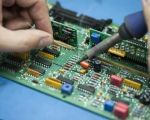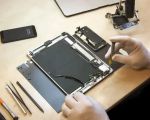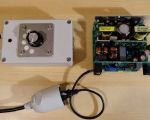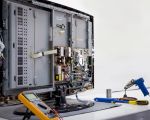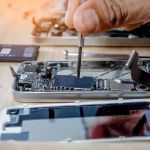How to Install Windows 10 from a Bootable USB Drive: A Step-by-Step Guide
- Why Use a Bootable USB Drive to Install Windows 10
- Preparing Your Bootable USB Drive
- Step-by-Step Guide to Install Windows 10 from a USB Drive
- Common Issues and Troubleshooting Tips
- Discover Ninja Stik: Make Your Installation Process Even Easier
1. Why Use a Bootable USB Drive to Install Windows 10
Installing Windows 10 from a bootable USB drive is one of the fastest and most reliable methods to upgrade or fresh install the operating system on your computer. A bootable USB drive offers several benefits over traditional methods like using a DVD. It is not only faster but also more versatile, especially if your computer lacks an optical drive. Additionally, using a USB drive minimizes the risk of installation errors and allows for a clean installation process.
In this guide, we will walk you through the entire process of creating a bootable USB drive and using it to install Windows 10 on your computer. By following these simple steps, you'll ensure a smooth and efficient installation experience.
2. Preparing Your Bootable USB Drive
Before you begin the installation process, you need to prepare a bootable USB drive. This involves formatting the USB drive and copying the necessary Windows 10 installation files onto it. Here's how to do it:
- Get a USB Drive: You will need a USB drive with at least 8GB of storage capacity. Ensure there is no important data on it as it will be formatted during the process.
- Download the Windows 10 Installation Media: Go to the official Microsoft website and download the Windows 10 media creation tool. This tool will help you create the bootable USB drive.
- Run the Media Creation Tool: Open the media creation tool and choose the "Create installation media for another PC" option. Select your language, edition, and architecture (32-bit or 64-bit) to match your system specifications.
- Choose USB Drive: Select "USB flash drive" as the media type, and ensure your USB drive is selected in the list. The tool will then download Windows 10 and copy the necessary files to the USB drive.
Once the media creation tool finishes, your USB drive will be ready for use in installing Windows 10.
3. Step-by-Step Guide to Install Windows 10 from a USB Drive
Now that you have your bootable USB drive ready, it’s time to start the installation process. Here’s how to install Windows 10 from a USB drive:
- Insert the USB Drive: Plug the bootable USB drive into your computer’s USB port.
- Access the BIOS/UEFI Settings: Restart your computer and access the BIOS/UEFI settings. This is usually done by pressing a key (like F2, F12, Esc, or Del) during the boot-up process. Check your computer’s manual for the exact key.
- Change the Boot Order: In the BIOS/UEFI settings, locate the boot order section and set the USB drive as the first boot device. Save your settings and exit.
- Boot from USB: Your computer will now boot from the USB drive. The Windows 10 installation screen will appear.
- Install Windows 10: Follow the on-screen prompts to install Windows 10. Choose your language, time zone, and keyboard layout, then click "Install Now." Enter your product key (if prompted) or choose the option to skip it and activate Windows later.
- Choose the Installation Type: You can choose between an upgrade or a custom installation. A custom installation is recommended if you want a fresh start. Select the partition where you want to install Windows 10 and click "Next."
- Wait for the Installation to Complete: Windows 10 will begin the installation process, and your computer may restart a few times. Make sure not to remove the USB drive until the process is complete.
Once the installation is finished, you will be prompted to configure settings like your username, password, and Wi-Fi network. After that, you can start using Windows 10 on your computer.
4. Common Issues and Troubleshooting Tips
While installing Windows 10 from a bootable USB drive is usually straightforward, you might encounter some issues. Here are a few common problems and solutions:
- USB Drive Not Recognized: Make sure the USB drive is properly inserted into the USB port and that the drive is formatted correctly. Try using a different USB port if necessary.
- Installation Freezes or Stalls: If the installation process freezes, restart the computer and try again. Ensure that your USB drive is not corrupted and that your system meets the minimum requirements for Windows 10.
- Windows 10 Not Activating: If you’re having trouble with activation, check that you’ve entered the correct product key. If you skipped entering the key during installation, Windows 10 can be activated later through the Settings menu.
If you continue to experience issues, consult Microsoft’s support page or contact customer service for further assistance.
5. Discover Ninja Stik: Make Your Installation Process Even Easier
If you're looking for an easier way to manage your installation files and ensure a smooth process, consider Ninja Stik. Ninja Stik is a powerful tool designed to simplify the Windows installation process, making it quicker and more efficient. With Ninja Stik, you can easily manage your bootable USB drive and ensure everything is set up for a hassle-free installation.
To learn more about Ninja Stik and how it can make your Windows 10 installation even easier, visit Ninja Stik today!











